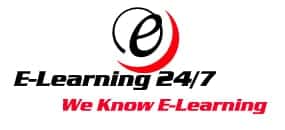Life After the Death of Angel Learning Management System
When an LMS Dies…
The Angel learning management system, after cheating death once, will officially retire in October 2016. Before then, hundreds of institutions will have to search for a new provider.
The death of a major learning management system is not an everyday event. In the day-to-day battle for market share, providers make gains by peeling off customers from their competitors, outmaneuvering other suitors when a college or university looks to makes a once-in-a-decade shift. U.S. higher education is considered a saturated market, and as one of those systems now leaves the space, it creates an opportunity for providers to scoop up new clients — and headache for the colleges and universities urged to migrate.
“This is potentially a big deal, because it’s one of those structural changes in the market that creates disruption,” said Kenneth C. (Casey) Green, whose Campus Computing Project tracks higher education IT trends, including changes in the learning management system market. “It creates a great opportunity for other providers to say, look, you’ve got an up-or-out decision here.”
Angel Learning’s death has long been foreshadowed. Blackboard acquired the company in 2009, and then gave the system five years to live. This month, Blackboard said, Angel would move to “end-of-life” status, meaning the company would no longer maintain the system or develop new features.
In 2012, Blackboard reversed earlier plans, saying it would continue to support Angel “indefinitely.” The company described its new strategy as one that involved multiple learning management systems, from its flagship product, Learn, to the open-source Moodle.
Then, earlier this month, Blackboard reversed again. Come Oct. 15, 2016, the colleges and universities still running Angel will be on their own, though Blackboard will still offer “limited, situational support,” it told Pennsylvania State University.
“The official answer is that there are third-party technologies that underlie the Angel learning platform that are either at or rapidly approaching their end-of-life from those manufacturers,” said Valerie Schreiner, Blackboard’s vice president of product management. “We would be coming into a position where we couldn’t guarantee a service level to these clients that we were comfortable with. We’ve worked as long as we could.”
The decision lets Blackboard focus on fewer products, but the company still faces a fight to retain its customers. Among the Angel institutions that migrated this spring, Blackboard only captured between one-quarter and one-third, according to data collected by University of Maryland University College enterprise solutions engineer George Kroner.
When Blackboard announced the first end-of-life date for Angel, Penn State formed a committee to look for a replacement system. The committee then put its work on hold — and signed a five-year agreement to keep running Angel through December 2017 — when Blackboard backtracked on the plans. Now, the committee’s work has started back up again, said Terence N. O’Heron, the university’s director of operations in teaching and learning with technology.
The agreement likely means a busy 2017 for Penn State. Although Blackboard will honor the terms of the five-year agreement, it will be up to the university’s IT staffers to identify bugs, report them to Blackboard and then cross their fingers for a fix, O’Heron said.
“We were glad to hear that they went to indefinite support,” O’Heron said, adding that he was disappointed to hear Blackboard will cut back on its support for Angel. “We’re not surprised that they’re ending the life of Angel, but in the end we respect the fact that they’re honoring our current agreement.”
O’Heron said Penn State is planning to pilot Learn next summer after much prodding from Blackboard. “They’ve been lobbying us ever since they bought Angel back in May 2009,” he said, but added, “That’s not to say we’re closing our options.”
The State University of New York, meanwhile, has a migration schedule in place to move all the campuses using Angel to other systems by 2017, said David Belsky, a spokesman for the system. Of the 35 campuses that at one point used Angel, 23 still need to migrate.
SUNY is something of a success story for Blackboard. Six campuses have already moved to Learn and another “handful” will migrate to Moodle, Belsky said.
Apart from holdouts such as Penn State and SUNY, Angel is today a more common sight at smaller institutions. The average Angel institution has about half the number of students as the average institution running Sakai, according to Kroner’s data. Many of those that still run the system today are community colleges that launched the system a decade ago and have yet to migrate to a new one.
Read full story by Carl Straumsheim on Inside HigherEd
Persona Learning, named a top LMS for 2015 and number 5 for education, is positioned to assist Angel LMS customers cope with the imminent end of life support announced by Blackboard. Persona Learning is committed to providing a transition and migration plan to help ease the pain of change… At 99 cents per user per course for higher education and 99 cents per student per year for K12 Persona Learning should be considered by all education organizations as a cost effective way to migrate away from or to a new learning management system…



